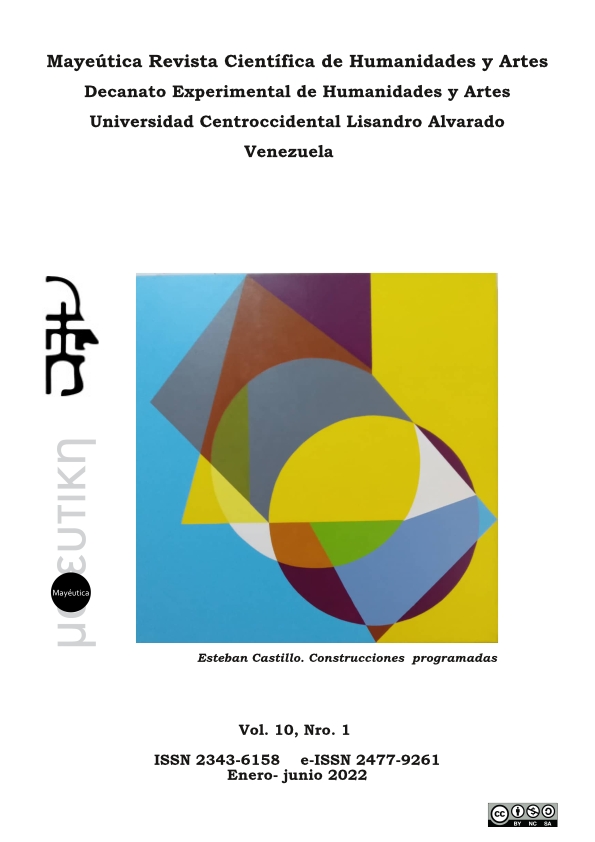La Danza nacionalista: Folklore and popular culture for the project of nation in Venezuela
Keywords:
Danza Nacionalista, Folklore, Culture, Nation, Yolanda MorenoAbstract
The purpose of this research was to reconstruct from the perspective of social history and through documentary review and interpretation and indepth interviews, the artisticcultural dynamics of the Danza Nacionalista in Venezuela, as an expression of folklore and popular culture in the period 19482015. In its origins, the Danza Nacionalista promoted from the Retablo de Maravillas, led by the writer Manuel Rodríguez Cárdenas, was part of a political project to promote a sense of nation among the inhabitants of a country that, despite its mining wealth, was disintegrated since its creation as a republic in the first third of the 19th century. We address the historical passing of dance and some conceptual details about dance, popular culture, folklore and nation. Seen in time, it is worth affirming that the Danza Nacionalista, which later acquired the denomination of Danzas Venezuela, earned its space in the artistic endeavor and in the popular imagination of the country, an imaginary rooted in the figure of Yolanda Moreno, the “bailarina del pueblo venezolano".
Downloads
References
Acosta Saignes, M. (1961). Estudios de Etonología Antigua de Venezuela. Universidad Central de Venezuela.
Acosta Saignes, M. (1980). Estudios de Antropología, Sociología, Historia y Folklore. Biblioteca de la Academia Nacional de la Historia.
Acosta Saignes, M. (1987). Cultura Popular. Revista Nacional de Cultura.
Agudo Guevara, X. (2012). “Danza cultura e identidad. Diez momentos”. En Suma del pensar venezolano. Sociedad y cultura de lo real a la imagen. Libro 3. Fundación Empresas Polar.
Aretz, I. (1983). Manual de Folklore. Monte Avila editores.
Castillo D´Imperio , O (1985). Un Nuevo Ideal para Venezuela, aproximaciones al período 1948-1958. Universidad Central de Venezuela .
Domínguez, L (1979). Breve Historia del Instituto Nacional del Folklore.
Hobsbawm E, (2004). Naciones y Nacionalismos desde 1780. Critica. Biblioteca de Bolsillo 2da Edición.
González Ordosgoitti, E. (1996). Venezuela Tradición en la Modernidad. Equinoccio Ediciones, Universidad Simón Bolívar, Fundación Bigott.
Guerra, R (1990). Apreciación de la Danza. Universidad del Zulia, Dirección de Cultura.
Liscano, J (1976). Folklor y Cultura. Ensayo. Editorial Ávila Gráfica.
Moreno, Y. (2017). Entrevista personal.
Moya, I. (1972). Didáctica del folklore. Compañía Fabril Editora.
Rodríguez Cárdenas, M. (1981). El Retablo de Maravillas y Danzas Venezuela.
Strauss, R (1998). Antropología, Historia y Mentalidad: El Cambio y el no cambio. En Venezuela Tradición en la Modernidad. Fundación Bigott Equinoccio Ediciones de la Universidad Simón Bolívar.
Published
How to Cite
Issue
Section

This work is licensed under a Creative Commons Attribution-NonCommercial-ShareAlike 4.0 International License.





